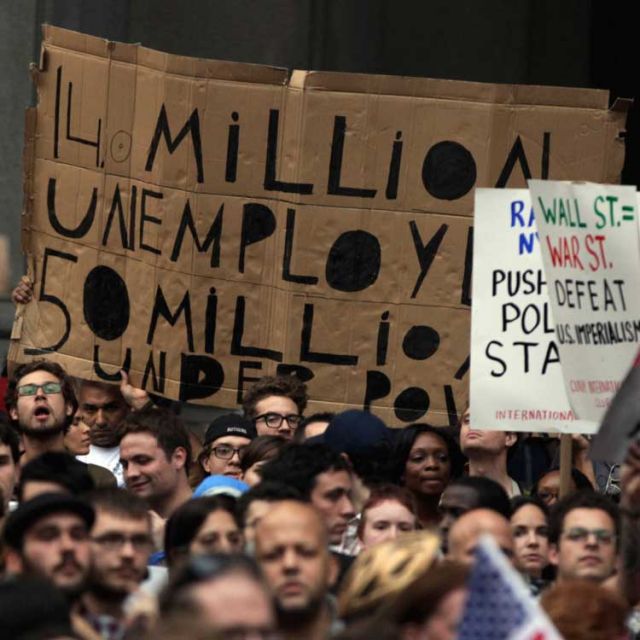Ste. Adele, Que. - In the midst of the worst economic crisis in decades, "there is no miracle cure," a Montreal-based economist told the Canadian bishops Sept. 25.
Governments do not have much leeway to help those affected, though economies that are more flexible will suffer less, Pierre Piché, an expert in international investment and advisor to the Power Corporation of Canada, told the Canadian Conference of Catholic Bishops annual plenary.
“There is not much choice,” Piché told the gathering of more than 90 Canadian bishops. “Either we suffer or we need to adjust. We’re going to suffer even if we adjust.”
The crisis affects the whole world economy, especially its key engines: North America, Europe and Japan.
“It goes really bad when you’re on a plane and you have three of the four engines not working,” he said.
He gave a macro view of the problem through key indicators: unemployment that is more and more structural and composed of people who have been looking for work for a longer time than previously or have abandoned looking for work altogether; sluggish rates of growth; and rising government debt.
Piché said fears of inflation have been replaced by fear of deflation where prices go down in a generalized manner. This explains the behaviour of central banks in trying to pump money into the economy.
“Deflation is horrible,” he said. “It’s very serious because it changes the behaviour of people. When they know prices are going down, they won’t spend. It creates a vicious circle.”
Now there is a cycle where governments and individual households are rejecting a pattern of heavy indebtedness that preceded 2007, he said.
We’re facing what economist John Maynard Keynes called the “paradox of thrift,” he said, noting while it is good and ethically right for households and corporations to be thrifty, “if nobody consumes, then nobody sells anything and everyone goes broke.”
Fr. Bill Ryan of the Jesuit Forum for Social Faith and Justice in Toronto offered a theological reflection on the crisis, pointing out Pope Benedict XVI calls for the logic of profit to be replaced by the logic of gift “that is the opposite of putting a price on everything.”
At the basis is the right relationship we must develop between God and human, among humans and with creation, including a preferential option for the poor, Ryan said, stressing the “essential relationship between faith and justice and justice and evangelization.”
“The whole planet is our neighbourhood and in need of evangelization,” he said, noting the Pope’s social justice encyclical Caritas in Veritate also concerned itself with evangelizing and civilizing the global economy.
Faith and justice cannot be separated, nor can evangelization and justice, he stressed.
Ryan call a “new and global humanism” a “sign of the times,” saying the secular world is coming to a “growing consensus we need a new mindset.”
“Our models and tools are proving inadequate; we seem to be walking with no clear purpose,” he said.
Montreal Auxiliary Bishop Thomas Dowd said the “logic of the gift ties in with our preoccupation with the family.”
“The family is an economic unit, but its internal relations are supposed to be based on the logic of the gift,” he said. “You don’t have kids just because you want someone to look after you in your retirement.”
Families’ internal relationships are becoming “atomized,” he said, and less and less based on the logic of the gift, Dowd said.
“That’s the canary in the coal mine, a sign the whole thing is disordered.”
Ryan said it is important to not always look at big economic structures but at the problems of the small ones. One problem attacking families is the level of family debt which is higher in Canada than elsewhere.
“If we don’t have strength at the bottom,” needed values “won’t come into institutions,” he said.

